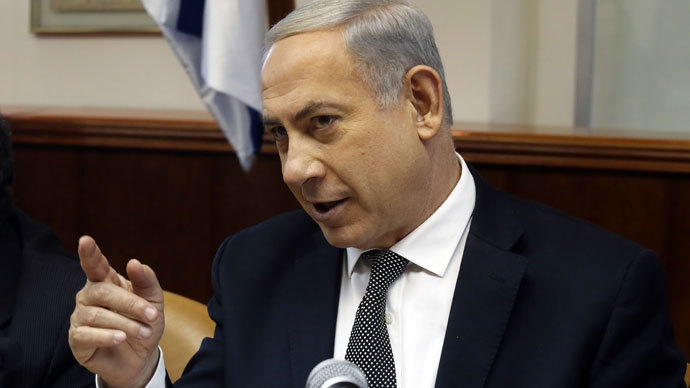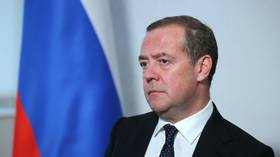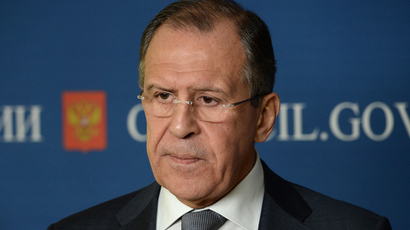Israeli ministers demand end to US spying, but Netanyahu lets revelations 'pass quietly'

Top Israeli politicians want the US to stop "systematically spying" on Israel after revelations that the NSA intercepted emails of former top brass. Much to everybody's surprise, the Prime Minister’s Office has chosen to stifle the scandal, however.
"The secret is out," Transportation Minister Yisrael Katz said Sunday. "The US is systematically spying on the defense and diplomatic leadership here in Israel. Is this how friends treat each other?"
Housing Minister Uri Ariel said on Israel Radio he expected the US to admit wrongdoing.
The NSA responded to media reports claiming it had spied on Israeli government officials by saying that it is "not going to comment publicly on every specific alleged intelligence activity," Haaretz newspaper reported. NSA spokeswoman Bernadette Meehan added that the US "gathers foreign intelligence of the type gathered by all nations."
Labor Member of Knesset Nachman Shai said: "The silence of Israeli officials following these reports is disappointing and shameful."
"We cannot let such revelations pass quietly. Like Germany and Brazil, we should ask the US for clarification, or at least confirmation that such spying has stopped."
Documents leaked last week by former NSA contractor Edward Snowden revealed that the UK's GCHQ intelligence agency worked hand in hand with that of the US to target email addresses belonging to the then-serving Israeli Prime Minister Ehud Olmert and Defense Minister Ehud Barak, among others.

Snowden’s previous NSA files have revealed US operations
targeting Brazilian President Dilma Rousseff’s cellphone and that
of Angela Merkel. Earlier this week the German Chancellor told
Der Spiegel that the Obama administration’s tactics are on a par
with those of the notorious East Germany police, the Stasi.
Prime Minister Benjamin Netanyahu has kept silent on the
revelations. His only reaction came when a number of Israeli
politicians called on Washington to release Jonathan Pollard, a
spy jailed for passing classified material to Israel while
working as a US Naval intelligence analyst.
Israel doesn't need a "special incident to talk about the
release of Jonathan Pollard," Netanyahu said. "We are
dealing with this with every US president, including with
President Obama, all the time, including now," he added
during his weekly cabinet meeting.
The "Prisoner of Zion" revealed information that Iran, Syria,
Iraq and Libya were busy developing weapons of mass destruction
to attack Israel. The whistleblower pleaded guilty and received a
life sentence in 1987. In 1995 Israel granted him citizenship,
and has lobbied for his release since then. Pollard has already
spent nearly 30 years in a federal prison, an all-time record, as
no one in the US history has ever been given a life sentence for
similar offense, whose median time is between two and four years.
Meanwhile, one member of Knesset who heads the parliamentary
lobby pushing for Pollard’s release said that "the most
recent revelations about spying and surveillance by the US
against its ally needs to light a red light of morality for any
logical person."
"There needs to be reciprocity in any relationship between
countries," Ayelet Shaked said on Sunday. "It is
inconceivable that while Pollard has been rotting in an American
prison for decades for spying, which was considered an
unforgivable crime by the American government, we are now
informed that the US has been spying against Israel, and this is
just swept under the rug."

Israeli investigative journalist David Bedein has proposed a tit-for-tat way-out.
"The way to facilitate the freedom of Jonathan Pollard is to cordially request the government of Israel to detain an identified operative of the American government and to exchange him for Pollard."
He said that people who ask the White House to free Pollard "on moral grounds" have a deep misconception about the US.
"America does not run according to sentiments. The US operates according to interests at hand and according to the rules of hardball diplomacy," Bedein wrote on his blog.














